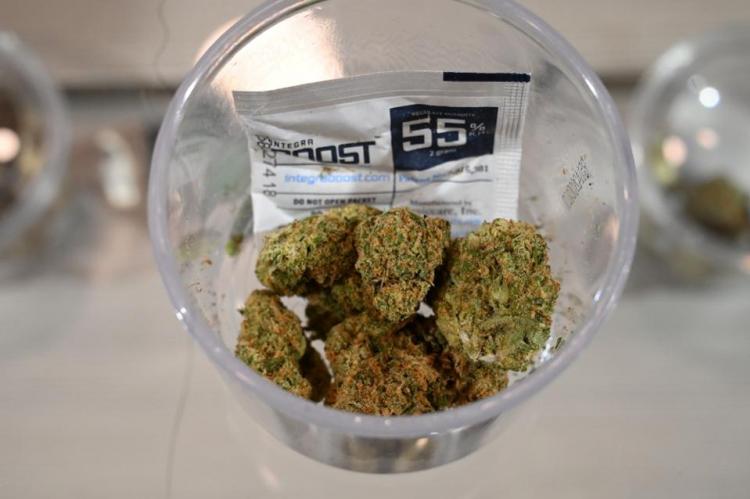California Is Raising Its Taxes On Cannabis... Again
Image Source: ROBYN BECK/AFP via Getty Images
Los Angeles, CA – The California Department of Tax and Fee Administration (CDTFA) announced yesterday that it plans to raise taxes on the legal cannabis industry once again. This move is considered to be another blow to an industry that is currently facing an economic downturn in a depressed market.
The legal cannabis industry faces stiff competition from a thriving illicit market, due to the non-compliant market's significantly lower price points. The CDTFA's latest planned tax increase will further exacerbate price point discrepancies between the compliant and non-compliant markets. Potentially, cannabis consumers may be driven away from the heavily-taxed legal market if the latest tax increases are passed on to consumers rather than absorbed by operators.
While the CDTFA describes its mission "to make life better for Californians by fairly and efficiently collecting the revenue that supports our essential public services," it is hampering the legal cannabis industry's ability to operate cost-effectively. This latest tax increase is prompting some California cannabis executives to believe CDTFA is deliberately trying to crush the livelihood of legal operators.
"It makes you wonder if the state wants the legal cannabis industry to fail," said one exasperated executive on the condition of anonymity.
Cannabis Markup Rate
CDFTA is responsible for determining the tax mark up rate on cannabis every six months. According to their website, "an analysis of statewide market data was used to determine the average mark up rate between the wholesale cost and the retail selling price of cannabis and cannabis products. Based on this analysis, effective January 1, 2020, the newest markup rate will be at 80%."
Additionally, the 15% cannabis excise tax is based on the average market price of cannabis or cannabis products in a retail transaction. The markup rate is used when calculating the average market price to determine the cannabis excise tax due in an arm's length transaction where the average market price is the retailer's wholesale cost of cannabis or cannabis products plus, the markup rate determined by the CDTFA.
In a non-arm's-length transaction, the average market price is the cannabis retailer's gross receipts from the retail sale of cannabis or cannabis products.
Cultivation Tax Rates:
As of January 1, 2020, the tax on cannabis flower per dry weight per ounce will increase from $9.25 to $9.65. Marijuana leaves per dry weight per ounce will increase from $2.75 to $2.97, and fresh cannabis plants per ounce will increase from $1.29 to $1.35.
The rates apply to cannabis that a cultivator sells or transfers to a manufacturer or a distributor.
California is considered by many to be the Shangrila state of the legal industry, due to the sheer size and scope of ubiquitous dispensaries and the plethora of products that they carry. However, that may change for marijuana supply chain operators and consumers alike if they are increasingly priced out of the market.
Authored by: Sarah Brittany Somerset, Forbes
- Log in to post comments

